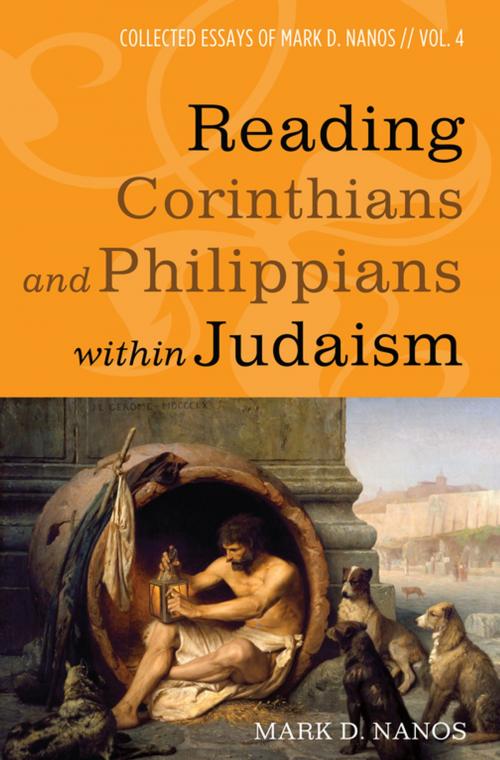Reading Corinthians and Philippians within Judaism
Collected Essays of Mark D. Nanos, vol. 4
Nonfiction, Religion & Spirituality, Bible & Bible Studies, New Testament, Study| Author: | Mark D. Nanos | ISBN: | 9781498242363 |
| Publisher: | Wipf and Stock Publishers | Publication: | August 18, 2017 |
| Imprint: | Cascade Books | Language: | English |
| Author: | Mark D. Nanos |
| ISBN: | 9781498242363 |
| Publisher: | Wipf and Stock Publishers |
| Publication: | August 18, 2017 |
| Imprint: | Cascade Books |
| Language: | English |
The commentary tradition regarding 1 Corinthians unanimously identifies the "weak" as Christ-followers whose faith was not yet sufficient to indulge in the eating of idol food with indifference, as if ideally Paul wanted them to become "strong" enough to do so. Commentaries also do not hesitate to explain that Paul advised the Corinthians that he behaved like non-Jews (e.g., ate idol food) in order to win non-Jews to Christ, convinced that he was free from any obligation to observe Jewish covenantal behavior--except when he expediently chose to mimic Jewish behavior in order to win Jews to Christ. Similarly, commentators continue to conclude that in Philippians Paul called Jews "dogs" for upholding the value of undertaking circumcision, and that he renounced such identification as "mutilation." None of these interpretations likely represent what Paul meant originally, according to Nanos. Each essay explains why, and provides new alternatives for re-reading Paul's language "within Judaism." In this process, Nanos combines investigations of relevant elements from Jewish sources and from various Cynic and other Greco-Roman contemporaries, as well as the New Testament.
The commentary tradition regarding 1 Corinthians unanimously identifies the "weak" as Christ-followers whose faith was not yet sufficient to indulge in the eating of idol food with indifference, as if ideally Paul wanted them to become "strong" enough to do so. Commentaries also do not hesitate to explain that Paul advised the Corinthians that he behaved like non-Jews (e.g., ate idol food) in order to win non-Jews to Christ, convinced that he was free from any obligation to observe Jewish covenantal behavior--except when he expediently chose to mimic Jewish behavior in order to win Jews to Christ. Similarly, commentators continue to conclude that in Philippians Paul called Jews "dogs" for upholding the value of undertaking circumcision, and that he renounced such identification as "mutilation." None of these interpretations likely represent what Paul meant originally, according to Nanos. Each essay explains why, and provides new alternatives for re-reading Paul's language "within Judaism." In this process, Nanos combines investigations of relevant elements from Jewish sources and from various Cynic and other Greco-Roman contemporaries, as well as the New Testament.















